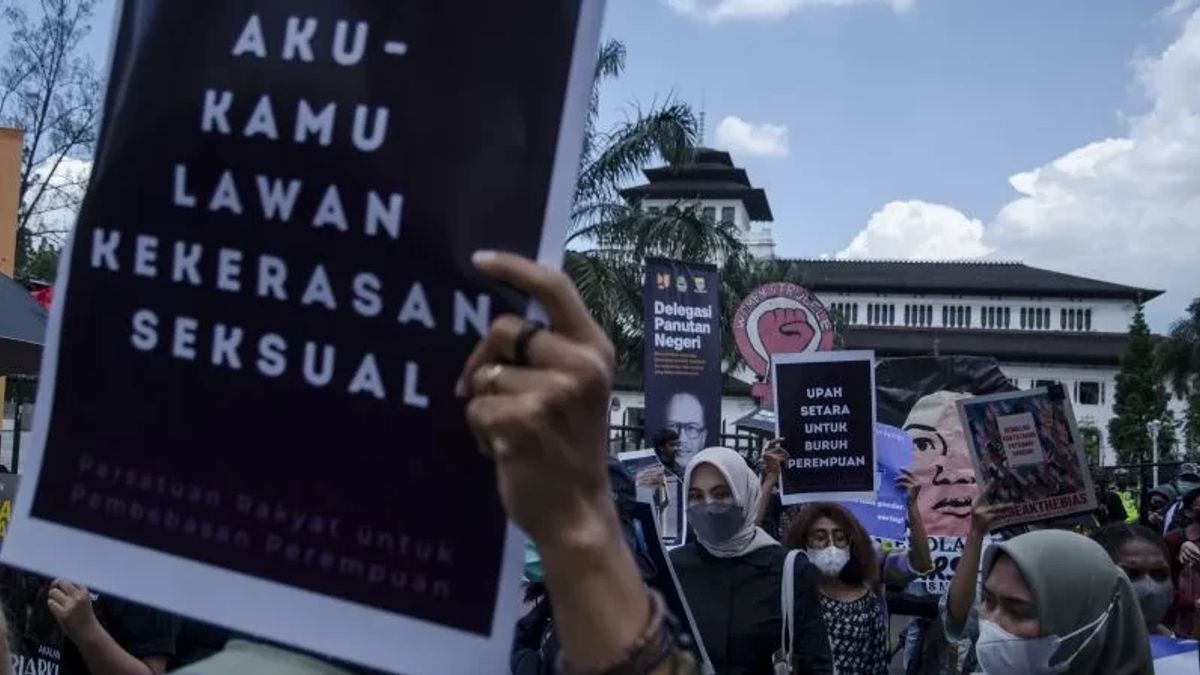JAKARTA - Institute for Criminal Justice Reform (ICJR) researcher Maidina Rahmawati views the importance of the element of not having the victim's consent or consent in the formulation of the article on forced marriage in the Draft Law on Criminal Acts of Sexual Violence (RUU TPKS).
"It should also be emphasized that the formulation of the article on forced marriage must contain clear and strict elements regarding the absence of consent in a specific marriage, such as the powerlessness of the victim," Maidina said in a statement received in Jakarta, Monday, April 4, quoted from Antara.
He considers it important for legislators to include elements of the victim's incompetence to understand the impact of being bound in a marriage, marriages that are unknown to the victim, marriages carried out based on deceit, debt bondage, and threats of violence against themselves or their families. "This needs to be emphasized," he said.
Furthermore, Maidina also discussed the basic problem in handling sexual violence, namely the difficulty of the provisions in the criminal code of procedure to be fulfilled by the victim.
"Therefore, progressive steps are needed to bring reforms to the criminal procedure law," said Maidina.
This progressive effort, he said, empowers victims but does not lower the standard of evidence and guarantees the right to a fair trial.
In the Problem Inventory List (DIM) Number 171, the Government and the DPR agree on evidence to commit a crime or as a result of a criminal act, and/or objects or goods related to the crime can be used as evidence.
The argument presented by the Government is that under the state there is no separation between evidence (AB) and evidence (BB).
However, in that country there is a function of a magistrates judge or preliminary examining judge who first examines the relevance of the evidence to determine whether it can be used in a case or not.
"We don't have that function in the current KUHAP (Criminal Procedure Code) concept. If the TPKS Bill wants to introduce this, there must first be an update of the KUHAP," he said.
If the current Government applies the article in DIM No. 171, will potentially be misused and violate the principles of the Criminal Procedure Code. People can easily be convicted with minimal evidence.
"It seems that there is no need to include the formulation of DIM No. 171, it is enough that the arrangement of one witness is allowed if it is accompanied by other evidence. However, other evidence is guaranteed to include evidence of a psychiatric post-mortem or a certificate of psychological examination of the victim," he said.
The English, Chinese, Japanese, Arabic, and French versions are automatically generated by the AI. So there may still be inaccuracies in translating, please always see Indonesian as our main language. (system supported by DigitalSiber.id)









